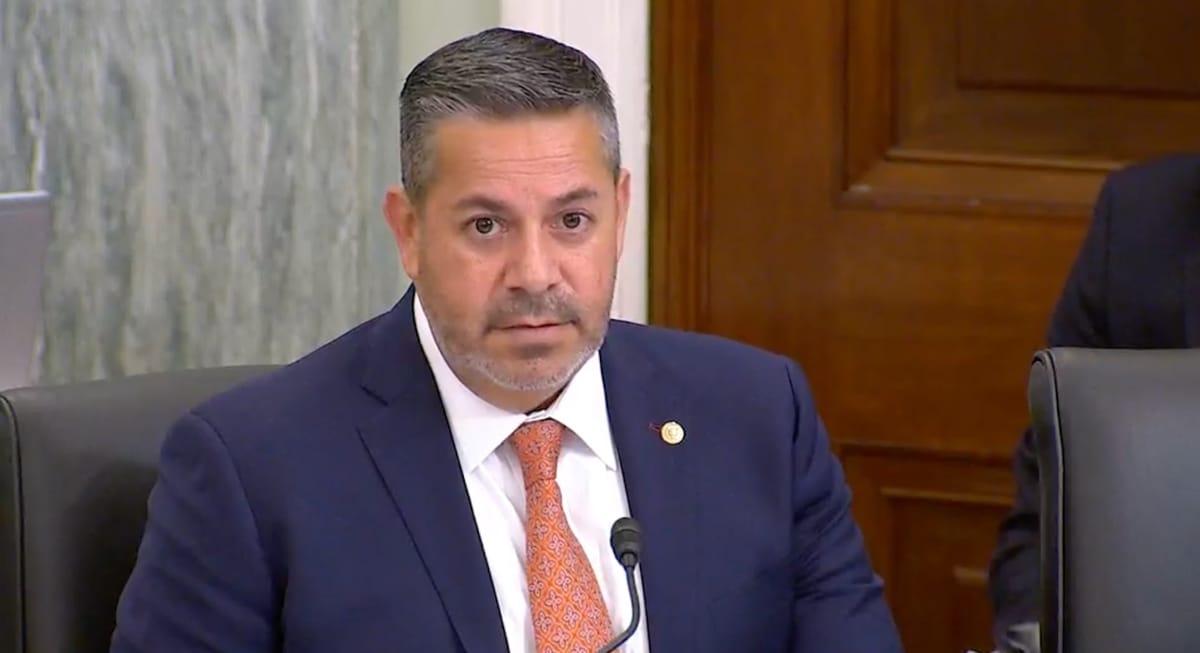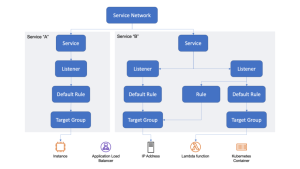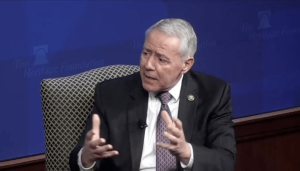
WASHINGTON, March 21, 2024 – Republican and Democratic senators highlighted differing views on reauthorizing the Federal Communications Commission’s spectrum auction authority at a Senate Commerce Committee hearing on Thursday.
There is broad agreement that the agency’s legal authority to auction and license radio frequencies to commercial users, which lapsed over a year ago, should be renewed. Without it, the supply of spectrum can’t keep pace with increasing demands from mobile networks and other technologies.

Democratic senators voiced support using the proceeds from those auctions to fund the Affordable Connectivity Program, an internet subsidy for low-income households set to dry up in the coming months. The fund supports more than 23 million households and calls for refunding it have been ongoing for months.
Ranking Member Ted Cruz, R-Texas, and Sen. John Thune, R-South Dakota, touted a bill they introduced last week that would restore auction authority but not mandate that proceeds be spend on the ACP or the rip and replace program, another underfunded FCC program that reimburses small providers for swapping Chinese equipment out of their networks.
“This bill is focused on getting the policy right at the outset rather than allowing our nation’s spectrum policy to be dictated by where we should spend auction proceeds,” Cruz said.
Senator Ben Luján, D-New Mexico, entered into the record a letter from 25 advocacy groups urging Congress to restore auction authority and use $7 billion of the projected proceeds to keep the ACP afloat.
“The spectrum auction is one of the sources that may possibly allow us to continue this program,” said Sen. Peter Welch, D-Vermont. “But it really, really is urgent.”
The final spending bill for 2024, the full text of which was released early Thursday morning, does not include money for the ACP nor the rip and replace program, forestalling another potential avenue for funding. The measure will have to be passed by both chambers by midnight on Friday to avoid a partial government shutdown.
Lower 3 Ghz band
The FCC’s auction authority originally lapsed because of concerns about commercial users sharing the lower 3 Gigahertz band with incumbent Defense Department operators. A House reauthorization bill that would have allowed auctions in the band stalled as lawmakers waited for the results of a DoD study on the band.

The study, which has still not been publicly released, ultimately concluded that the government can’t currently share the spectrum, but industry continues to eye it for use in 5G networks. The Joe Biden administration’s spectrum strategy calls for continued study into ways the band could be opened up.
Experts at the hearing agreed more study will be needed.
“I think we have to now start evaluating federal spectrum from three perspectives,” said Mary Brown, executive director of WifiForward, a group that advocates for more unlicensed spectrum.
“One… could federal spectrum be compressed or could those systems be cleared? Two, could they be shared? …and three, should we consider putting unlicensed technologies in as an underlay?” she said. “Unless we have information on all three, we can’t make an informed decision.”
Dynamic spectrum sharing like the system used for the CBRS band is a promising way forward, said Monisha Ghosh, a professor of engineering at the University of Notre Dame.
“Dynamic spectrum sharing at low, medium, and perhaps indoor power is a great way to protect the DoD,” she said. “Not having them leave the band, but adding other services on top of it.”
China concerns
Committee members and witnesses repeatedly emphasized they see auctioning more spectrum as important to remaining competitive with China in the global telecommunications space.
The House recently passed three bills targeting telecom manufacturers seen as security threats because of their ties to the Chinese government and other adversaries of the United States. The same thinking motivated the rip and replace program’s effort to get equipment from Huawei and ZTE out of American networks.
Without a stronger pipeline, the U.S. risks becoming a “spectrum island” that operates largely outside of globally harmonized bands, giving suppliers the government considers more trustworthy a smaller market, said Clete Johnson, a senior fellow at the Center for Strategic and International Studies.
Brown, the WifiForward director, pointed to China’s effort to designate the 6 GHz band for licensed mobile use at the World Radiocommunication Conference in Dubai last year. The FCC opened that band up for unlicensed technologies like Wi-Fi in the United States, and the disconnect in regulations would limit where devices made to operate in the band could operate.
The U.S. was ultimately able to secure a WRC decision that taps the upper 6 GHz band for licensed use, but allows countries to approve unlicensed use in the band if they choose.
“That means U.S. industry can continue to go country by country to try to influence national regulation and come up with a harmonized approach to the 6 GHz band going forward,” she said.




